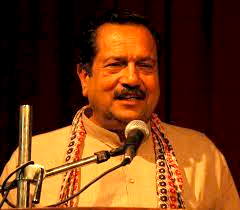Ahmedabad, Jan 19: A university in Gujarat has kicked a row by inviting a top Rashtriya Swayamsevak Sangh (RSS) leader, who is also an accused in the Ajmer blast case, as the chief guest for the institution's annual convocation ceremony.

As chief guest, Kumar will not only hand over gold medals to meritorious students, but also give a speech in the presence of governor OP Kohli on Monday.
The university said the decision to invite Kumar has been taken by vice-chancellor RL Godra himself. The invite calls the RSS leader "a social reformer and defence expert".
Kumar is one of the accused named in a CBI chargesheet on the blast at an Ajmer shrine in 2007, which killed three people and injured more than a dozen.
Interestingly, when a NavGujarat Samay reporter asked the registrar of the university Dr DM Patel about the invite, he said he had no idea who Indresh Kumar is. "The V-C fixed his name during a visit to Delhi," he said.
The RSS is the ideological mentor of the BJP.





Comments
Does Gujratis become sooooooooo weak to recognize the killers and the peace makers..?
No surprise, we have prime minister, who is the main reason for Gujrat carnage, no body gives damn on it....
He is not accused, he is real terrorist and follower of India's first terrorist Nathuram Godse.
Poor Gujaratis did not get any other person
May God help them to save the name of Gujarathis.
unfair, so called secular india this s the hard example.
if u wanna become famous like him, kill innocent people, its totally injustice to give him this respect.
wrongfully mentioned as terror accused, such a great person he is.
Add new comment